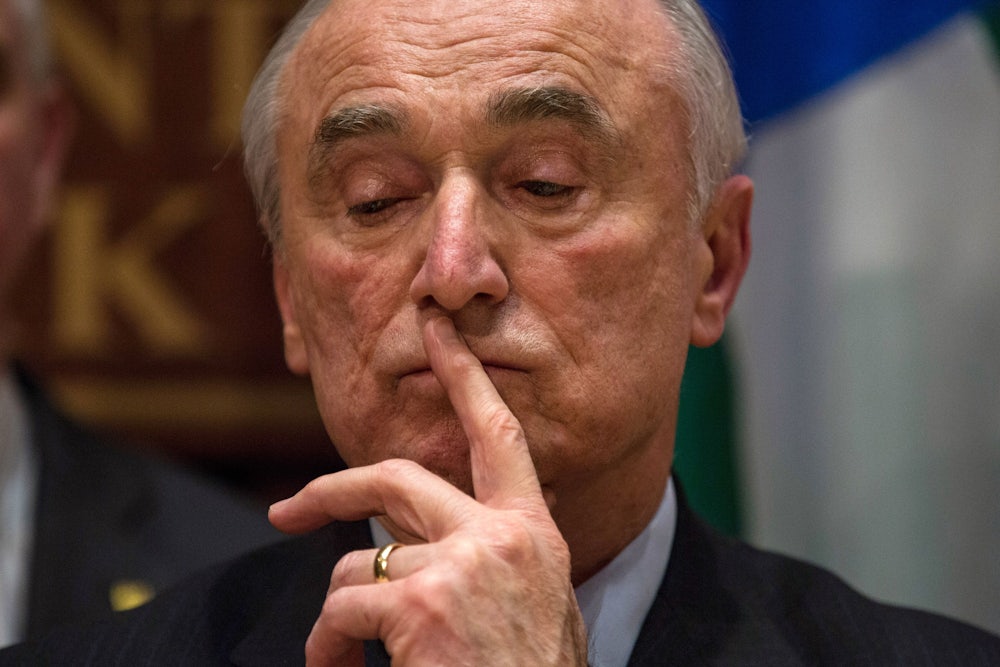The activists who gathered outside City Hall yesterday demanding Bratton’s ouster as New York City Police commissioner will be going home sooner than expected. There’s no indication yet whether the Occupy-style demonstration had anything to do with it, but numerous outlets are reporting that Mayor Bill de Blasio will announce Bratton’s resignation later today.
#BREAKING: Bill Bratton stepping down next month. Mayor will announce today at noon. Bratton leaving for job in private sector.
— Gloria Pazmino (@GloriaPazmino) August 2, 2016
A national spokesman for the “tough-on-crime” politics of the Rudy Giuliani 90s, Bratton was a bad fit for the Black Lives Matter moment. While Bratton presented himself as something of a reformer in the early days of the de Blasio administration—earning the everlasting ire of his predecessor Ray Kelly—he quickly became enveloped in the strained relationship between the mayor and his city’s police force, which fell to a low point in 2014 after the deaths of Eric Garner and police officers Rafael Ramos and Wenjian Liu. Bratton’s defense of the shield, at a time when his rank-and-file flirted with open insubordination, made it next to impossible for de Blasio to disown the toxic legacy of “broken windows” policing—which, to be fair, he partly embraced by naming Bratton. Just last month, Bratton told The New York Times he wouldn’t stay on for a possible second administration.
It may be that Bratton has grown tired of mediating between the mayor’s office and a police force he can’t control. Whatever the reason, Bratton’s departure presents an interesting case study in institutional change. For activists, the question now becomes: How much does the system really depend on its leader?
